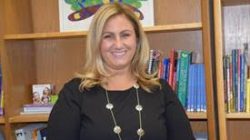Engaging English Language Learners in a Mainstream Classroom (ELL Classroom Strategies)
By Matt Zagami
Students come into classrooms at various stages of language acquisition. Because schools have shied away from self-contained English Language classes, they’ve mixed these students into the general classes. This creates a challenge for the teacher. You could have 25 students in a class, 20 could be fluent English speakers, and 5 could be students who are non english-speaking or at a beginning stage of learning to speak English fluently. The challenge that teacher encounters is: how do I keep that student engaged? How do I instruct this student? What are some ELL classroom strategies I could use right now? Below, we outline the strategies and philosophy behind our professional development workshop on engaging English Language Learners in your classroom.
CITE Professional Development workshops provide a framework for tackling the challenges of running a collaborative school community. Learn how we can help your school thrive at https://citepd.com/ or call 877-922-2483
____________________
Are you a teacher looking for Bilingual Courses? Click here for quick online registration.
____________________
Engaging ELL Students – Workshop Details
The ELL Classroom Strategies workshop involves going through the 5 stages of language acquisition and providing strategies that the teacher can use, detailing concrete activities for each one of these stages.
Stage I: Silent/Preproduction Stage
Stage II: Early Production Stage
Stage III: Speech Emergence Stage
Stage IV: Intermediate Fluency Stage
Stage V: Advanced Fluency
How Our ELL Classroom Strategies Training Works in Schools
We have worked on this challenge at a number of schools. For example, at PS 97 in Queens, we met for an entire day. We took each one of the acquisition levels and worked through usable classroom strategies together, including the following:
- One of these strategies is to use as many graphic organizers as you can, so we worked with how to do that in your classroom, no matter the content area.
- A school might pair up English speaking and non English speaking students, so we discussed the benefits and challenges of making that work.
- Puppets are a great way to get students to respond, so we played with ideas around using those, again, no matter the content area.
Questioning Techniques for the ELL Classroom
We tackle effective questioning for the ELL Classroom, in this workshop. In all of our PD workshops, whatever the topic may be, the Danielson Framework comes into play. School administrators looking to familiarize your staff with Danielson should call, so we can explain how we use these techniques inform every one of our PD workshops.
In the ELL Classroom Strategies workshop, there are several helpful topics we cover, with regards to questioning techniques, including these:
- When asking questions, teachers need to keep wait time in mind because a student who is learning English has to take in what that teacher is saying, translate it, and then respond — many times, teachers have the tendency to ask rapid fire questions. They ask, they get an answer, they move on. Many times, the teacher will be on the third question, and the student will be thinking about the first question. Wait time is very important, so we work with teachers through a series of exercises to recognize how that feels.
- Re-phrasing questions is also very important. It gives students another opportunity to find a word they can grab onto. So, we work on how to effectively do that.
- Using cognates matters.
- There is a whole group of videos on effective question techniques for ELL. We provide resources for extending your PD after the workshop by digging in to some of the material, and leaving you with more to explore.
Usable, Concrete ELL Classroom Activities
What we do in this workshop is look at each level of acquisition and develop activities for each level. We bring it right into the classroom. For us, it’s important that a teacher can walk out of this training with usable techniques — What would you do for this particular student, this social studies lesson? That ends up being a day. It’s a lot to digest. We talk about scaffolding your lessons, vocabulary development, the types of activities that teachers should use to develop their students’ vocabulary. Each topic results in activities that teachers can use right away.
ELL Classroom Techniques Affect Engagement
English language learners, without these techniques, become disengaged. I was an ELL student. I know what it’s like. Students get disruptive, because they’re bored. It takes a while. But with the proper scaffolding and the right focus, a teacher can make a huge difference.
We’re on Your Side
A lot of this is just what good teachers do. We make that explicit. I don’t have much push back. I usually approach this from the vantage point of, “I’m not here to tell you how to teach.” And it’s true. I’m here to help you think about your own teaching. If you’re doing this, fine. If not, you might want to consider. If you have anything you want to add, please do because I can learn from you, too. One of the reasons I rarely get pushback is I genuinely say, “I can learn from you. I don’t have all of the answers.”
In these workshops, sometimes I get concerns from teachers who are saying, “I have a student who doesn’t speak any English. What do I do with that?” I have to be a realist. Until these students get a little English under their belt, there’s not much. Use as many visuals as you possibly can. Pair them up with students who speak the language. There’s a learning curve there. It could take 3-6 months before a student could contribute.
ELL Classroom Techniques for All Classrooms
I do a lot of ELL work. But I also get teachers who say, “I don’t have any ELL students in my class. How is this useful for me?” I tell them, they’re all ELL. They’re all at various stages of language acquisition. So, a lot of the strategies are just as valid for students who speak fluent English. It’s just good teaching. The lessons are valid for everybody. These techniques are designed to strengthen language for every student. I preface a lot of my workshops with, “You can use these with just about everyone, including children with special needs.” That disarms people because it’s useful, and it’s true.
____________________
Our team of Professional Development experts handles many PD topics for schools across the city. Call 877-922-2483 or visit https://citepd.com/ to find about how we can help your school thrive.
____________________
Are you a teacher looking for Bilingual Courses? Click here for quick online registration.
____________________
Matt Zagami is currently serving as one of our CITE Consultant/Coordinators in addition to his role as Adjunct Professor of Education at Adelphi University. Mr. Zagami’s experience spans some 38 years as a NYC teacher, Assistant Principal and Principal, before retiring as Assistant to the Superintendent for the Elmont Union Free School District in 2008.
____________________
Read what Principals say about CITE Professional Development —
“Many of our teachers benefited from our school’s partnership with CITE for the last couple of years. CITE’s consultants were experienced New York City Principals who quickly developed relationships with teachers and staff. They generously shared their extensive knowledge – teaching reading, writing, working with English language learners and students with special needs, analyzing student data, compliance and more – with our administrators, coaches and teachers. As a result, the training and professional learning they imparted was quickly evident in teachers’ classrooms.”
~Iris Aldea-Pollack
Principal, PS 360
____________________
Our team of Professional Development experts handles many PD topics for schools across the city. Call 877-922-2483 or visit https://citepd.com/ to find about how we can help your school thrive.
____________________
Are you a teacher looking for Bilingual Courses? Click here for quick online registration.
________________________
CITE is the Center for Integrated Training and Education. For over 25 years, CITE has and continues to train TEACHERS (Early Childhood, Professional Certification, Special Ed,Grad Courses, Bilingual courses, DASA); COUNSELORS (School, Mental Health Masters, Advanced Certificate); and ADMINISTRATORS (SBL, SDL, Public Admin, Doctorate) in all five boroughs of NYC, Yonkers, Westchester, and Long Island.
CITE PD offers CTLE-approved in-school professional development tailored to your school’s needs and your vision. Info: citepd.com
We now also offer an undergraduate degree completion program in psychology.








